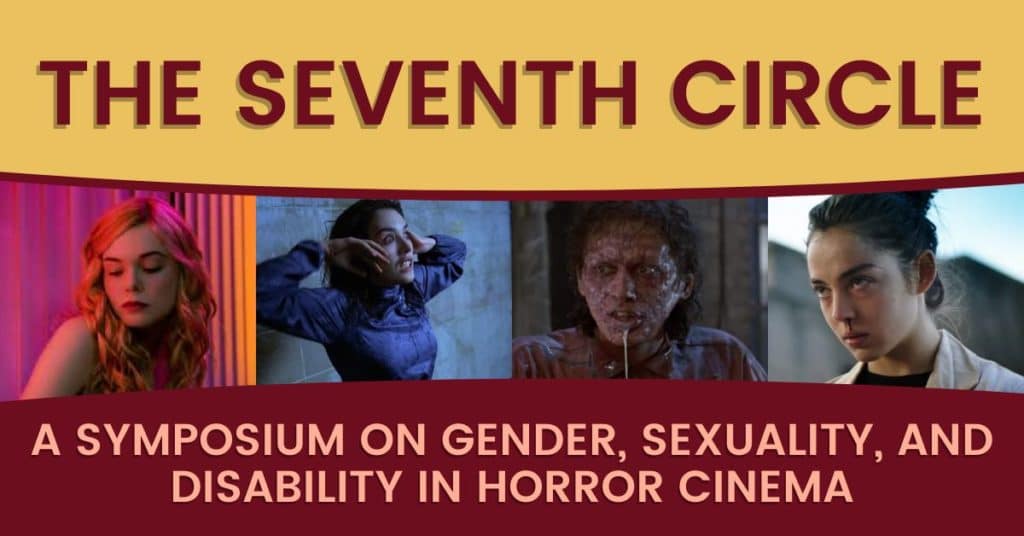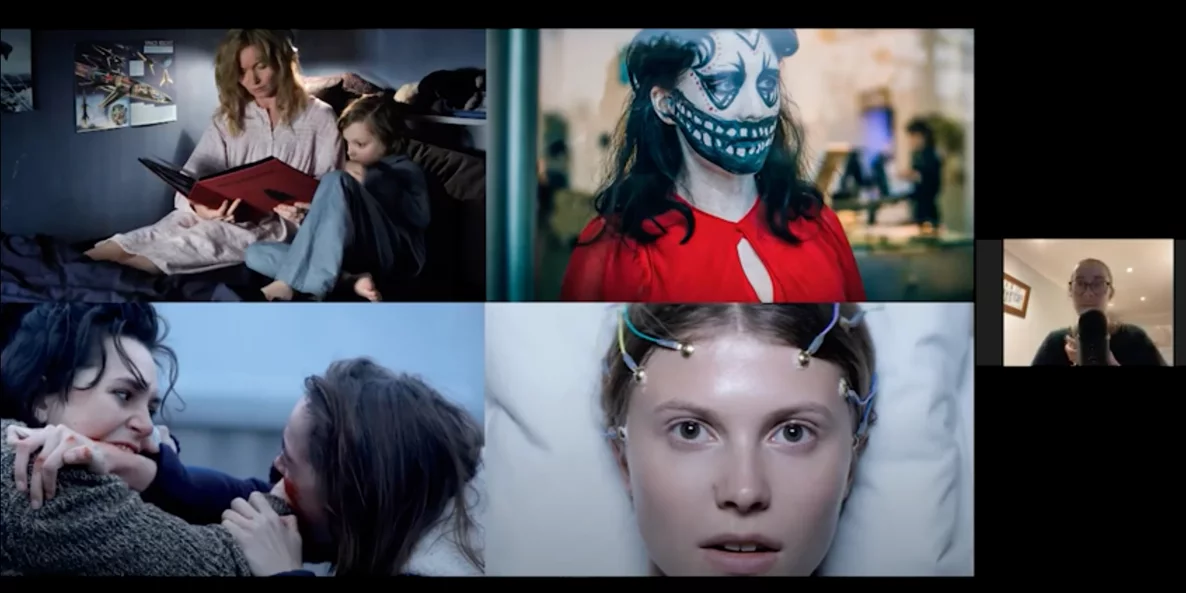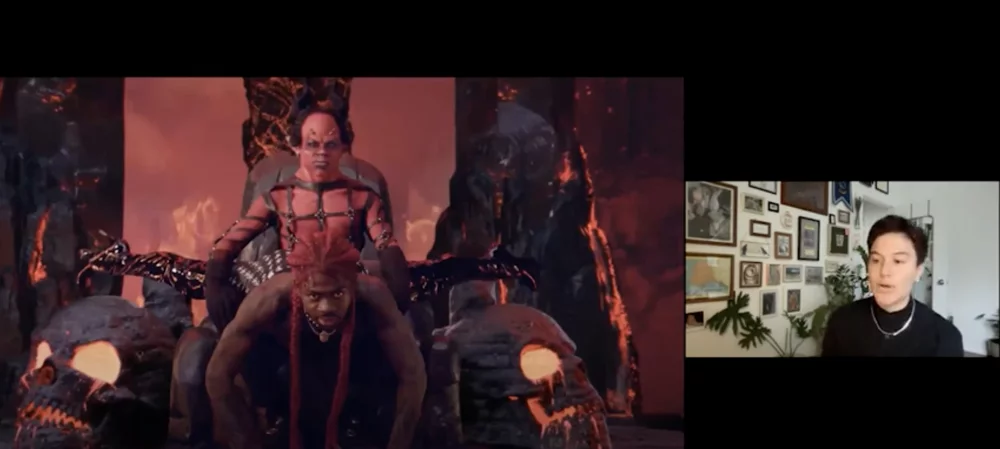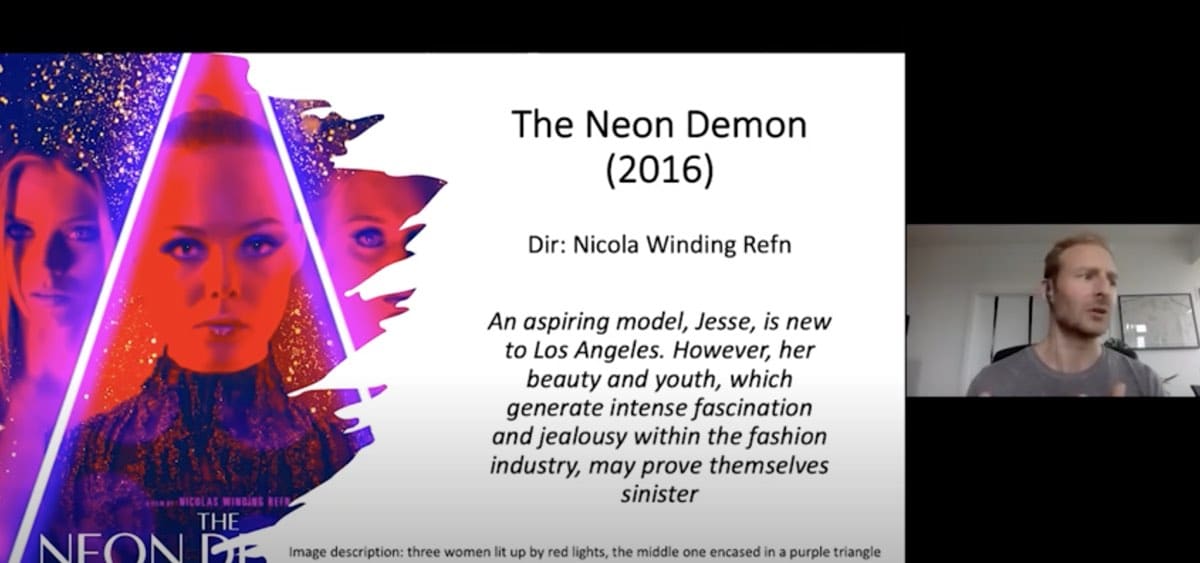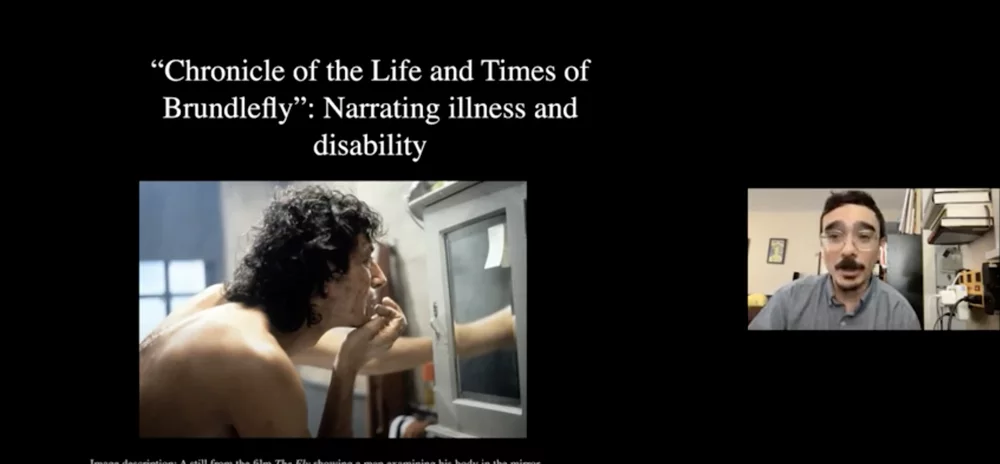space is limited
Don’t miss out.
Sign up for the December edition of the horror symposium today!
When: December 13–19, 2021
What is the Seventh Circle?
From December 13–19, watch back recordings of four talks by horror experts Joe Lipsett (Horror Queers podcast), Angelo Muredda (Disability on Film online lecture series), Orla Smith (Executive Editor of Seventh Row), and Lena Wilson (New York Times culture writer). These talks left us feeling invigorated with new ideas about horror cinema.
Each talk is followed by a recording of the live discussion that followed the original live event in October 2021. At the end of the week, join us for a live discussion group via Zoom with all members of the December cohort facilitated by Seventh Row editors Alex Heeney and Orla Smith (who also gave one of the talks!) All four guests have previously appeared on the Seventh Row podcast.
Learn about how horror filmmakers engage with social issues, meet like-minded horror fans, and share your own ideas with an enthusiastic online community.
The Seventh Circle illuminates how horror cinema represents social issues, from gender discrimination, to queerness, to disability. The speakers will dig into beloved films, such as Carrie (1976), Possession (1981), The Fly (1986) and modern classics like Raw (2016), Thelma (2017), and Good Manners (2017).
What you’ll get with a ticket
- Watch back recordings of all four Zoom talks and live discussion sessions from December 13–19
- Join Seventh Row’s online community message boards to discuss horror with likeminded fans
- A copy of Seventh Row’s ebook Beyond empowertainment: Feminist horror and the struggle for female agency
About the talks
Gender in horror
Outer threats and inner demons: The changing face of the ‘female monster’
This talk outlines recent trends in female monster stories in horror. You don’t need to watch anything to prepare for the talk, but you’ll leave with a lot of great recommendations.
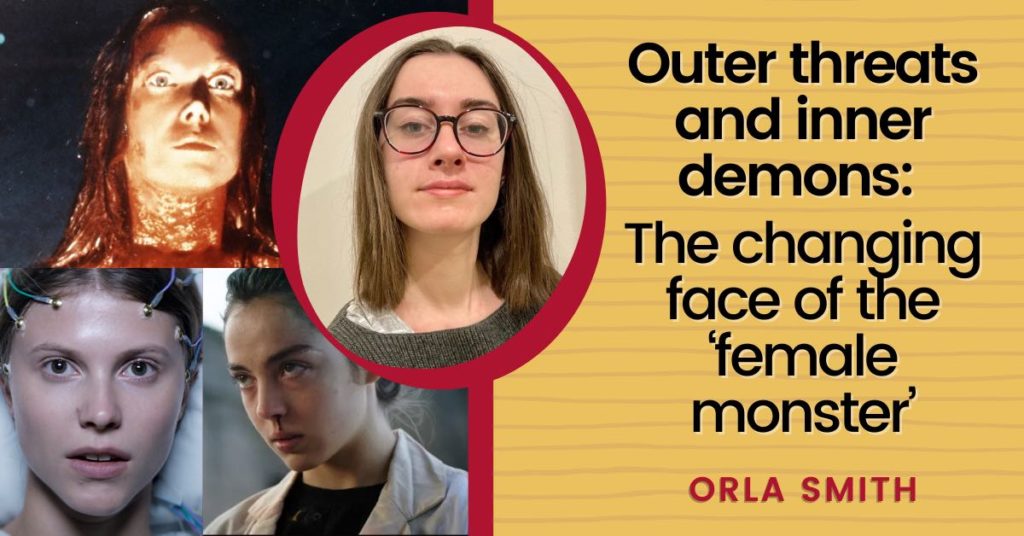
Female monsters have been a staple of horror for decades, from Carrie in 1976 to Raw in 2016. The protagonists of each of these films might seem similar on the surface: they’re young women with violent impulses that get out of hand. But there are key differences in how they’re portrayed. This talk will explore how films about female monsters have changed in the last few decades, as conversations about feminism in cinema have developed.
Viewing list
Essentials: Carrie (1976), Raw (2016), Thelma (2017)
Extra credit: Rosemary’s Baby (1968), The Babadook (2014), Prevenge (2016)
About Orla Smith
Based near London, Orla Smith is the Executive Editor of Seventh Row, where she has co-edited several ebooks, including Beyond empowertainment: Feminist horror and the struggle for female agency. She also works as a video editor for Picaroons. In her spare time, she makes movies.
Gender in horror
Better dead than wed: Demonic brides in modern horror
This talk goes deep on Possession and Honeymoon as examples of demonic brides trying to escape heterosexual marriage in horror films. You don’t need to have seen the films to enjoy the talk...but we do recommend catching them at some point!
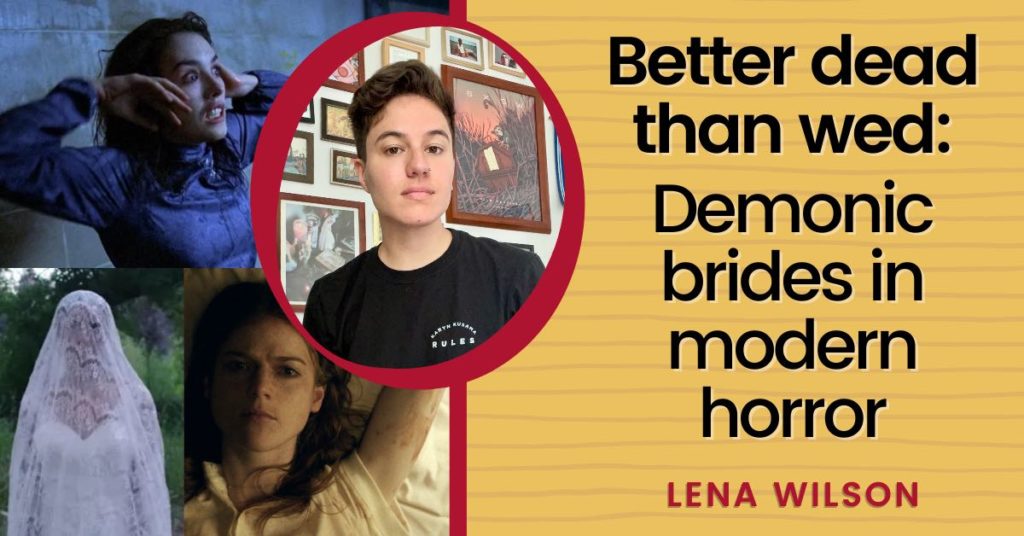
In horror films, possession often denotes weakness. Women are possessed far more often than men, reifying our cultural perception that the female body is inherently more susceptible to corruption because of its perceived inherent penetrability. Most possession films are content not to problematize this, but in films like Possession, Honeymoon, and Pure, possession actually allows women some physical and sexual agency—namely, it has the potential to help them to escape the bonds of heterosexual marriage.
These three films track the life cycle of marriage: Pure follows a young woman on the cusp of marriageability, Honeymoon focuses on the immediate aftermath of matrimony, and Possession depicts an incredibly messy divorce. By studying each of them in turn, we can see the threat that heterosexual marriage poses on female independence in full relief, as well as how possession (whether by alien lifeform, weird forest bug, or Lilith herself) offers a way out.
Viewing List
Essentials: Possession (1981), Honeymoon (2014), Pure (2019)
Extra credit: The Exorcist (1973)
About Lena Wilson
Lena Wilson is a culture critic with writing in The New York Times, Slate, and Seventh Row. She often covers horror movies despite being afraid of many things.
Sexuality in horror
Dicks, boobs and best friends: Key distinctions in international vs domestic contemporary queer horror films
This talk outlines recent trends in LGBTQ+ representation in horror in the last decade. You don’t need to watch anything to prepare for the talk, but you’ll leave with a lot of great recommendations.
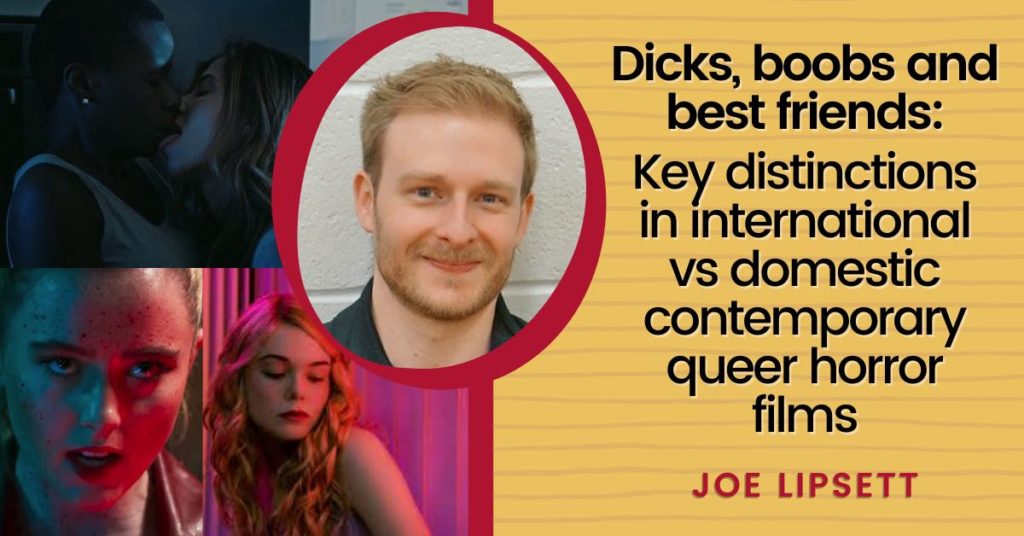
This presentation will provide an overview of recent trends in contemporary queer horror (2010-present) by comparing international films with those made in North America. International films, more often aimed at an adult audience, prioritize queer experiences and prominently feature depictions of sex, relationships & nudity. Domestic productions, by comparison, are principally divided into two streams:1) mainstream / teen audiences, where queer characters and relationships are chaste or secondary; and 2) art house, which often features adults are who coded queer, supporting characters or have limited sexual agency.
Viewing list (pick one from each category):
International: Good Manners (2017), Rift (2017), Knife + Heart (2018)
Domestic Mainstream: Freaky (2020), The Craft: Legacy (2020), Fear Street: 1994 (2021)
Domestic Art House: The Invitation (2015), The Neon Demon (2016), The Lighthouse (2019)
About Joe Lipsett
Joe Lipsett is a writer and co-host of Horror Queers, a queer horror podcast on the Bloody Disgusting Podcast Network. He has bylines in Bloody Disgusting, /Film, Consequence, Pajiba, Anatomy of a Scream and Grim Journal.
Disability in horror
‘Does this Look Like a Sick Man?’: Disability, Aging, and Illness in David Cronenberg’s The Fly
This talk goes deep on representations of disability in David Cronenberg’s The Fly. You don’t have to see the film to enjoy the talk, but we all at Seventh Row enjoyed catching it to prepare the talk, and is streaming widely.
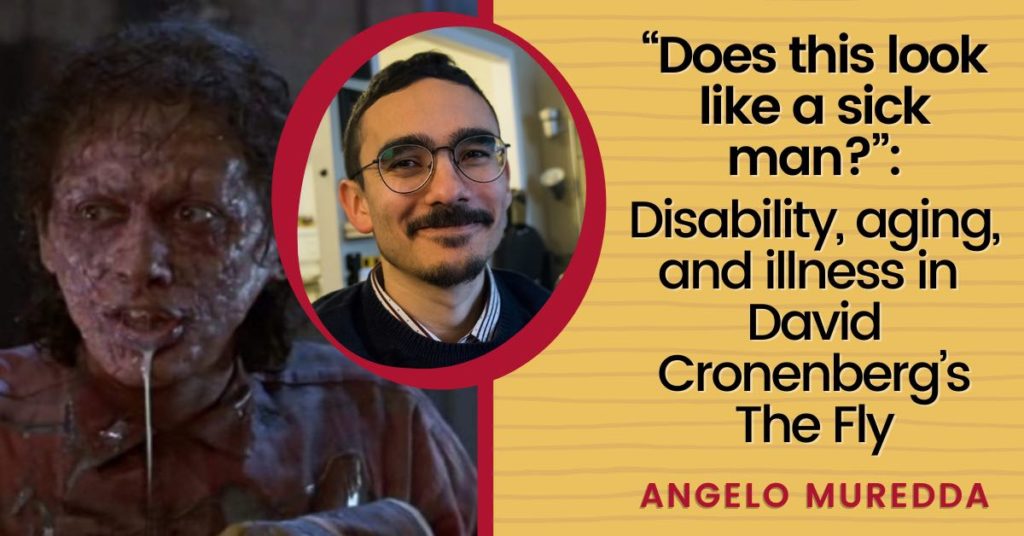
This talk will revisit David Cronenberg’s 1986 horror remake The Fly through a disability studies lens. It will examine the film’s aesthetics of the grotesque and its melodramatic narrative in terms of its depiction of disability as at once a novel bodily form and a threat to the reproductive and social health of the young family at the film’s centre. It will also consider how the film’s depiction of disability and illness fit within Cronenberg’s larger body of work, and position the film within a larger tradition of monster movies about disability and physical difference.
Viewing List
The Fly (1986): Stream it on Hulu US, Crave+ Canada, and Disney + in the UK and Australia. Find it in your country here.
About Angelo Muredda
Angelo Muredda is a Toronto-based film critic, programmer, and educator. His writing has appeared in outlets such as Cinema Scope, the National Post, The Walrus, and Film Freak Central. He holds a PhD in English on representations of disability in Canadian literature and film from the University of Toronto, and teaches in the Department of English at Humber College.
About the ebook Beyond Empowertainment
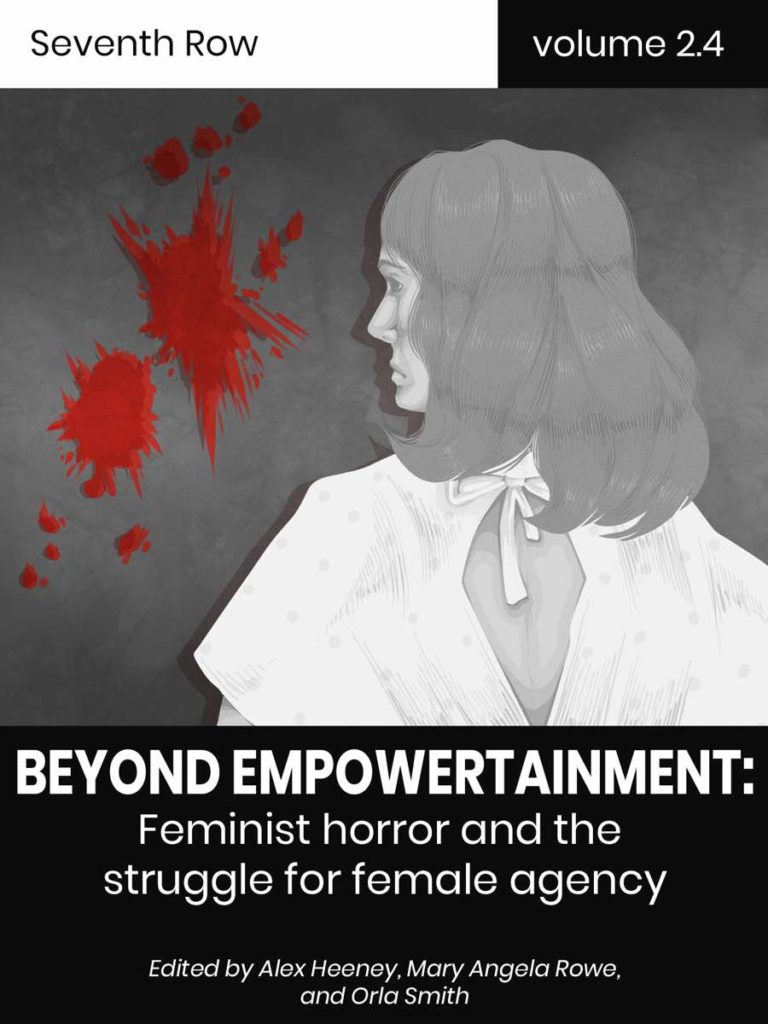
Calling all horror fans
Discover some of the best female-centred horror films of the decade and how they’re pushing the genre forward with Beyond Empowertainment.
As featured on

Praise for the ebook Beyond Empowertainment
FAQ
With a ticket, you will be able to watch the recordings of all of the talks and discussions, and join us for a live discussion at the end of the week; discuss horror on Seventh Row’s online community message boards; and get a copy of Seventh Row’s ebook Beyond empowertainment: Feminist horror and the struggle for female agency.
As soon as you sign up, you’ll be able to download an ePub and PDF copy of our ebook Beyond empowertainment: Feminist horror and the struggle for female agency to get you excited for the event. You will also get access to our online community to meet other attendees. Then, from December 13–19, watch back the recordings of the four talks and discussions, and then join us for a live discussion on Zoom with the full December cohort at the end of the week.
No. The symposium is intended to be an ongoing discussion series built around a community of attendees. As such, you can only attend by purchasing a ticket to the entire event (all four talks).
Tickets are on sale now until December 12 at 11:59pm, but space is very limited. Get your ticket now to ensure you aren’t locked out of the event!
A ticket to attend costs $100 CAD but if you purchase a ticket before December 10 at 11:59pm, you can use the coupon code SeventhCircleDec21 for 50% off tickets. It also includes a free copy of the ebook Beyond empowertainment: Feminist horror and the struggle for female agency and access to our virtual community.
